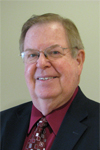 James Rowland has been a faculty member in electrical engineering since 1966. Jim began his academic career at the Georgia Institute of Technology, before going home to Oklahoma State University in 1971, and proceeding to the University of Kansas in 1985. He has won numerous awards for his excellence in teaching, specifically in the area of controls. Jim’s biggest contribution to engineering education has been his activities involving the Frontiers in Education conference. Additionally, Jim has performed over 35 engineering program accreditation visits as a program evaluator for ABET.
James Rowland has been a faculty member in electrical engineering since 1966. Jim began his academic career at the Georgia Institute of Technology, before going home to Oklahoma State University in 1971, and proceeding to the University of Kansas in 1985. He has won numerous awards for his excellence in teaching, specifically in the area of controls. Jim’s biggest contribution to engineering education has been his activities involving the Frontiers in Education conference. Additionally, Jim has performed over 35 engineering program accreditation visits as a program evaluator for ABET.
The profile below was authored by Adam Carberry, Arizona State University, based on an interview with Dr. Rowland in 2014.
Dr. James Rowland
Professor
University of Kansas
B.S., Electrical Engineering, Oklahoma State University, 1962
M.S., Electrical Engineering, Purdue University, 1964
Ph.D., Electrical Engineering, Purdue University, 1966
Continue reading James Rowland: Pioneering through FIE and ABET

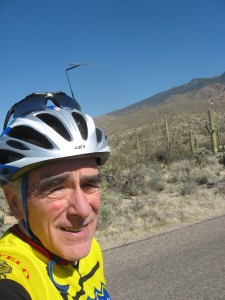 David Voltmer taught engineering at Rose-Hulman for 32 years, and prior to that was on the faculty at Penn State University. He is an ASEE Fellow, has served as a Member of the IEEE Education Society AdCom and as an officer in the Electrical Engineering division and Educational Research Methods division of ASEE. He has also been very involved in the Frontiers in Education conferences.
David Voltmer taught engineering at Rose-Hulman for 32 years, and prior to that was on the faculty at Penn State University. He is an ASEE Fellow, has served as a Member of the IEEE Education Society AdCom and as an officer in the Electrical Engineering division and Educational Research Methods division of ASEE. He has also been very involved in the Frontiers in Education conferences.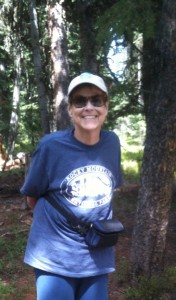 Ruth Streveler entered the field of engineering education research through the education side, rather than through engineering. When she brought her expertise in teaching and learning to the Colorado School of Mines, she became particularly interested in engineering education, due to the engineering-focused setting. Dr. Streveler helped lead the Rigorous Research in Engineering Education (RREE) workshops, and is currently faculty in the School of Engineering Education at Purdue University. She is heavily guided by her intuition for “shiny things,” and sees engineering education as a discipline so new that everybody has to blaze their own path through it.
Ruth Streveler entered the field of engineering education research through the education side, rather than through engineering. When she brought her expertise in teaching and learning to the Colorado School of Mines, she became particularly interested in engineering education, due to the engineering-focused setting. Dr. Streveler helped lead the Rigorous Research in Engineering Education (RREE) workshops, and is currently faculty in the School of Engineering Education at Purdue University. She is heavily guided by her intuition for “shiny things,” and sees engineering education as a discipline so new that everybody has to blaze their own path through it.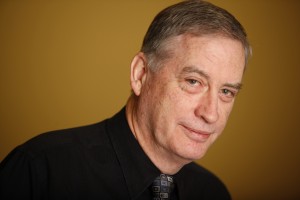 David Radcliffe has served as a scholar and innovator in that “other space” of engineering design and practice for nearly 40 years across two continents (Australia and the U.S.). He currently serves as Head of Engineering Education and Epistemology Professor of Engineering Education at Purdue University. Dr. Radcliffe’s current scholarly pursuits include exploring the career trajectories of graduate students and faculty in the field, as well as the processes through which industry engineers-in-practice continue to learn throughout their careers. His administrative passions center on the development and success of engineering education faculty who may one day constitute a new cadre of “pioneers.”
David Radcliffe has served as a scholar and innovator in that “other space” of engineering design and practice for nearly 40 years across two continents (Australia and the U.S.). He currently serves as Head of Engineering Education and Epistemology Professor of Engineering Education at Purdue University. Dr. Radcliffe’s current scholarly pursuits include exploring the career trajectories of graduate students and faculty in the field, as well as the processes through which industry engineers-in-practice continue to learn throughout their careers. His administrative passions center on the development and success of engineering education faculty who may one day constitute a new cadre of “pioneers.”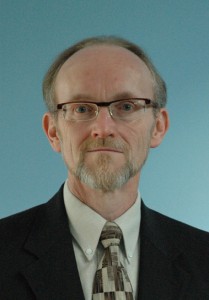 Tom Litzinger has worked at Penn State University since 1985. He began his career there as assistant professor of mechanical engineering and held a leadership role in the NSF-funded ECSEL Coalition. He is currently the Assistant Dean for Educational Innovation and Accreditation in the College of Engineering, and Director of the Leonhard Center for the Enhancement of Engineering Education, which collaborates with the engineering departments to bring continuing improvements to Penn State’s undergraduate engineering programs and to provide instructional support to faculty.
Tom Litzinger has worked at Penn State University since 1985. He began his career there as assistant professor of mechanical engineering and held a leadership role in the NSF-funded ECSEL Coalition. He is currently the Assistant Dean for Educational Innovation and Accreditation in the College of Engineering, and Director of the Leonhard Center for the Enhancement of Engineering Education, which collaborates with the engineering departments to bring continuing improvements to Penn State’s undergraduate engineering programs and to provide instructional support to faculty.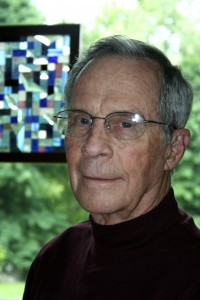 Richard (Dick) Culver has held faculty and administrative positions at a variety of academic institutions around the world. With a career focused on encouraging the intellectual development of undergraduates, he was critical to the development of EPICS (Engineering Practices Introductory Course Sequence) at Colorado School of Mines and DTeC (Design Technology and Communication) at SUNY-Binghamton. Through the development of these programs, he was one of the first to apply psychological models of development in engineering education.
Richard (Dick) Culver has held faculty and administrative positions at a variety of academic institutions around the world. With a career focused on encouraging the intellectual development of undergraduates, he was critical to the development of EPICS (Engineering Practices Introductory Course Sequence) at Colorado School of Mines and DTeC (Design Technology and Communication) at SUNY-Binghamton. Through the development of these programs, he was one of the first to apply psychological models of development in engineering education.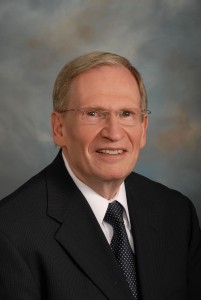 Eli Fromm has held many positions at Drexel University, including teaching in the biological sciences and electrical engineering departments, as well as senior administrative positions. After more than 20 years in bioengineering research, he was instrumental in curriculum reform for the freshman/sophomore engineering experience starting in 1988 with the E4 program (Enhanced Educational Experience for Engineering Students). In 1992, he started the Gateway Coalition program, which implemented many of the same ideas as E4 (with significant extensions) at ten partner institutions. This program helped shine a spotlight on engineering education reform throughout the country.
Eli Fromm has held many positions at Drexel University, including teaching in the biological sciences and electrical engineering departments, as well as senior administrative positions. After more than 20 years in bioengineering research, he was instrumental in curriculum reform for the freshman/sophomore engineering experience starting in 1988 with the E4 program (Enhanced Educational Experience for Engineering Students). In 1992, he started the Gateway Coalition program, which implemented many of the same ideas as E4 (with significant extensions) at ten partner institutions. This program helped shine a spotlight on engineering education reform throughout the country.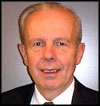 Lawrence P. Grayson got started in engineering education in the 1960s. He is past president of the American Society for Engineering Education and has received numerous awards, including the Hoover Medal, the George Washington Medal, and the Institute of Electrical and Electronics Engineers-USA Award for Distinguished Contributions to Engineering Professionalism. As a member of ASEE’s Educational Research and Methods (ERM) Division, he led a variety of successful projects to raise the profile of effective teaching and learning nationwide, during a time when teaching was not valued or recognized nearly as much as research in the university setting. His efforts included the resurrection of the ERM Division’s effectiveness and membership, the coordination of 12 regional workshops on effective teaching for every ASEE region in the nation, and the main plenary on “Teaching Really Matters” at the 1971 ASEE Annual Conference, among other initiatives.
Lawrence P. Grayson got started in engineering education in the 1960s. He is past president of the American Society for Engineering Education and has received numerous awards, including the Hoover Medal, the George Washington Medal, and the Institute of Electrical and Electronics Engineers-USA Award for Distinguished Contributions to Engineering Professionalism. As a member of ASEE’s Educational Research and Methods (ERM) Division, he led a variety of successful projects to raise the profile of effective teaching and learning nationwide, during a time when teaching was not valued or recognized nearly as much as research in the university setting. His efforts included the resurrection of the ERM Division’s effectiveness and membership, the coordination of 12 regional workshops on effective teaching for every ASEE region in the nation, and the main plenary on “Teaching Really Matters” at the 1971 ASEE Annual Conference, among other initiatives. Cindy Finelli started her career as an engineering faculty at Kettering University, where she created the Center for Excellence in Teaching and Learning. She joined the University of Michigan in 2003 to establish and direct the Center for Research on Learning and Teaching in Engineering. Over the past decade, she has built a strong community for engineering education research at the University of Michigan, and she has spread the mission of engineering education research to a broader, international audience through her scholarly work and professional service. In 2015, University of Michigan launched a unique initiative to hire tenured/tenure-track faculty whose primary area of scholarship is engineering education research and whose appointment is in a traditional engineering department. As a tenured electrical and computer engineering faculty member, Cindy is the first one of those faculty.
Cindy Finelli started her career as an engineering faculty at Kettering University, where she created the Center for Excellence in Teaching and Learning. She joined the University of Michigan in 2003 to establish and direct the Center for Research on Learning and Teaching in Engineering. Over the past decade, she has built a strong community for engineering education research at the University of Michigan, and she has spread the mission of engineering education research to a broader, international audience through her scholarly work and professional service. In 2015, University of Michigan launched a unique initiative to hire tenured/tenure-track faculty whose primary area of scholarship is engineering education research and whose appointment is in a traditional engineering department. As a tenured electrical and computer engineering faculty member, Cindy is the first one of those faculty.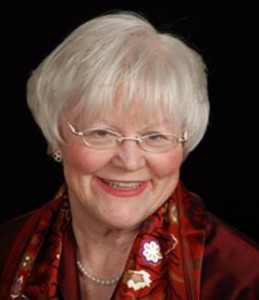 Sue Kemnitzer has served as Deputy Director of the Division of Engineering Education and Centers of the National Science Foundation since 1990. Previously, she was Special Assistant to the Secretary of the Interior and Budget Examiner at the Office of Management and Budget. She has focused on supporting research on how students learn engineering and on broadening participation in engineering fields.
Sue Kemnitzer has served as Deputy Director of the Division of Engineering Education and Centers of the National Science Foundation since 1990. Previously, she was Special Assistant to the Secretary of the Interior and Budget Examiner at the Office of Management and Budget. She has focused on supporting research on how students learn engineering and on broadening participation in engineering fields.